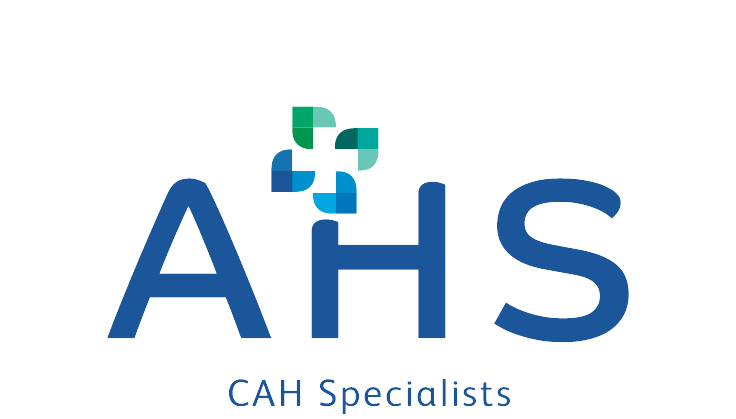
At AHS’s gastroenterology practice, Cornerstone Asia Health Specialists (Alvernia) and (Farrer), we address a broad range of conditions affecting the digestive tract, liver, and pancreas. From managing acid reflux and irritable bowel syndrome to diagnosing liver and pancreatic diseases, our specialists offer personalised care to support your digestive well-being and long-term health.
Consult a GP online to get a referral memo, required for insurance claims (if applicable), for your visit to a Gastroenterologist at AHS.
Liver diseases, including chronic hepatitis B and C, autoimmune hepatitis, primary sclerosing cholangitis, primary biliary cholangitis, and fatty liver disease, require careful diagnosis and management. Blood tests, imaging, and sometimes liver biopsies are used for diagnosis. Treatment varies based on the specific condition but may include antiviral medications for hepatitis, immune-suppressing drugs for autoimmune hepatitis, and lifestyle changes for fatty liver disease. Regular monitoring is crucial to manage these conditions effectively.
Pancreatic diseases such as acute and chronic pancreatitis necessitate prompt diagnosis and treatment. Acute pancreatitis often requires hospitalization for pain management and supportive care, while chronic pancreatitis may involve pain control, enzyme supplements, and dietary changes. Diagnosis typically involves blood tests, imaging studies, and sometimes endoscopic procedures. Managing underlying conditions like gallstones or alcohol use is also important.
Digestive diseases affecting the esophagus, stomach, small intestines, and colon can range from acid reflux and peptic ulcers to Crohn’s disease and ulcerative colitis. Diagnosis often involves endoscopic procedures, imaging studies, and laboratory tests. Treatment varies depending on the specific condition and may include dietary modifications, medications to reduce acid or inflammation, antibiotics for infections, and sometimes surgical interventions. Regular follow-ups are important to manage these conditions effectively and prevent complications.
Endoscopic screening is a key tool in detecting stomach and colon cancers. It involves using an endoscope to visually examine the stomach and colon. This method can detect early-stage cancers and precancerous growths, allowing for timely treatment. Regular screenings are recommended for individuals at higher risk.
This non-invasive diagnostic tool is used for examining the small intestine. Patients swallow a pill-sized camera that captures images throughout the digestive tract. It’s particularly useful in diagnosing conditions like Crohn’s disease, celiac disease, and small intestinal tumors.
Endoscopic ultrasound (EUS) combines endoscopy with ultrasound to obtain detailed images of the digestive tract and surrounding tissues. It’s crucial in the diagnosis and staging of gastrointestinal cancers and submucosal tumors, helping determine the extent of disease and guide treatment planning.
For gastrointestinal strictures caused by cancer, inflammation, or achalasia, endoscopic dilatation or stent placement can be effective. This procedure helps open narrowed areas, improving symptoms like swallowing difficulties or intestinal blockage.
This therapy treats gastrointestinal bleeding from various causes, including ulcers, cancers, varices, or hemorrhoids. Techniques may include injection of medications, application of clips, or cauterization, aiming to control bleeding and prevent recurrence.
Endoscopic ablation involves removing or destroying tumors in the esophagus, stomach, or colon. Techniques like laser or argon plasma coagulation (APC) are used, providing a less invasive alternative to surgery for certain types of tumors.
Endoscopic screening is a key tool in detecting stomach and colon cancers. It involves using an endoscope to visually examine the stomach and colon. This method can detect early-stage cancers and precancerous growths, allowing for timely treatment. Regular screenings are recommended for individuals at higher risk.
This non-invasive diagnostic tool is used for examining the small intestine. Patients swallow a pill-sized camera that captures images throughout the digestive tract. It’s particularly useful in diagnosing conditions like Crohn’s disease, celiac disease, and small intestinal tumors.
Endoscopic ultrasound (EUS) combines endoscopy with ultrasound to obtain detailed images of the digestive tract and surrounding tissues. It’s crucial in the diagnosis and staging of gastrointestinal cancers and submucosal tumors, helping determine the extent of disease and guide treatment planning.
This therapy treats gastrointestinal bleeding from various causes, including ulcers, cancers, varices, or hemorrhoids. Techniques may include injection of medications, application of clips, or cauterization, aiming to control bleeding and prevent recurrence.
Endoscopic ablation involves removing or destroying tumors in the esophagus, stomach, or colon. Techniques like laser or argon plasma coagulation (APC) are used, providing a less invasive alternative to surgery for certain types of tumors.
Liver diseases, including chronic hepatitis B and C, autoimmune hepatitis, primary sclerosing cholangitis, primary biliary cholangitis, and fatty liver disease, require careful diagnosis and management. Blood tests, imaging, and sometimes liver biopsies are used for diagnosis. Treatment varies based on the specific condition but may include antiviral medications for hepatitis, immune-suppressing drugs for autoimmune hepatitis, and lifestyle changes for fatty liver disease. Regular monitoring is crucial to manage these conditions effectively.
Pancreatic diseases such as acute and chronic pancreatitis necessitate prompt diagnosis and treatment. Acute pancreatitis often requires hospitalization for pain management and supportive care, while chronic pancreatitis may involve pain control, enzyme supplements, and dietary changes. Diagnosis typically involves blood tests, imaging studies, and sometimes endoscopic procedures. Managing underlying conditions like gallstones or alcohol use is also important.
Digestive diseases affecting the esophagus, stomach, small intestines, and colon can range from acid reflux and peptic ulcers to Crohn’s disease and ulcerative colitis. Diagnosis often involves endoscopic procedures, imaging studies, and laboratory tests. Treatment varies depending on the specific condition and may include dietary modifications, medications to reduce acid or inflammation, antibiotics for infections, and sometimes surgical interventions. Regular follow-ups are important to manage these conditions effectively and prevent complications.
Why Choose Us

Experienced Gastroenterologist and Hepatologist
With 20+ years of expertise.

Advanced Diagnostic Tools
We use the latest equipment for accurate diagnosis.

Comprehensive Services
From diagnosis to lifestyle advice.
Our Gastroenterology Specialist
Our Clinics
CAH Specialists @ Mount Alvernia
Address
820 Thomson Road Medical Centre
Block A #05-03
Singapore 574623
Contact
+65 6256 0417 / 6535 8833 (24 hrs)
CAH Specialists @ Farrer
Address
Farrer Park Medical Centre, Connexion
1 Farrer Park Station Road #07-05
Singapore 217562
Contact
+65 6443 0612
